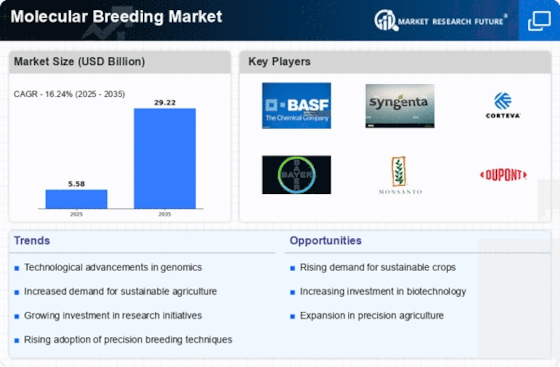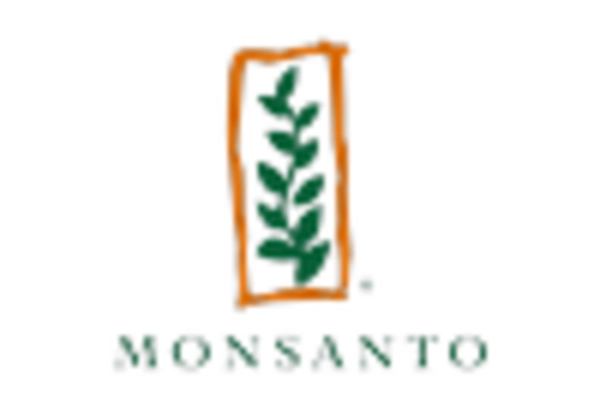Market Share
Molecular Breeding Market Share Analysis
molecular breeding market share companies are employing various strategies to establish their positions and gain a competitive edge in addressing the needs of farmers, agricultural researchers, and the biotechnology industry. Molecular breeding, which integrates advanced genomic technologies with traditional breeding methods to develop improved crop varieties, requires strategic positioning to effectively capture market share and cater to the evolving demands of stakeholders.
One of the primary strategies utilized in the molecular breeding market is product differentiation. Companies invest heavily in research and development to create innovative molecular breeding solutions that offer unique benefits to agricultural stakeholders. These solutions may include advanced genotyping and phenotyping technologies, bioinformatics tools for data analysis, and predictive modeling algorithms for trait selection. By differentiating their products based on these desirable features, companies can attract customers seeking solutions to accelerate crop improvement, enhance genetic diversity, and increase yield potential.
Pricing strategy is also crucial in market share positioning within the molecular breeding market. While the development and commercialization of molecular breeding technologies involve significant investment costs, companies must balance pricing to remain competitive. Some companies choose to compete based on price by offering cost-effective molecular breeding services and solutions that provide value for agricultural researchers and breeders. This approach aims to appeal to budget-conscious customers while ensuring profitability and sustainability for molecular breeding providers.
Furthermore, companies often target niche markets or specific customer segments to tailor their molecular breeding strategies. For example, companies may focus on developing molecular breeding solutions tailored to specific crops, such as maize, wheat, rice, or soybeans. Additionally, companies may specialize in addressing particular challenges or needs prevalent in certain regions or cropping systems, such as drought tolerance, disease resistance, or nutritional quality improvement. By understanding the unique requirements and preferences of different customer segments, companies can customize their molecular breeding offerings to provide targeted solutions effectively. This targeted approach allows companies to position themselves as leaders in specific crop segments and build strong relationships with customers seeking tailored breeding solutions.
Branding and marketing efforts are also instrumental in market share positioning within the molecular breeding market. Building a strong brand identity helps companies establish credibility, trust, and recognition among agricultural researchers, breeders, and industry stakeholders. Through effective branding, companies can communicate the benefits and value proposition of their molecular breeding services and technologies, distinguishing themselves from competitors. Additionally, targeted marketing campaigns highlighting the efficiency, precision, and impact of molecular breeding on crop improvement can influence purchasing decisions and drive demand in the market.
Moreover, strategic partnerships and collaborations play a crucial role in expanding market share and enhancing competitive positioning in the molecular breeding market. Collaborating with agricultural research institutions, seed companies, biotechnology firms, and breeding associations allows companies to leverage their combined expertise, resources, and networks to penetrate new markets and reach a broader customer base. Partnerships may involve joint research and development projects, licensing agreements, or commercialization partnerships to accelerate the adoption and application of molecular breeding technologies. By forging strategic alliances, companies can capitalize on synergies, expand their market reach, and strengthen their competitive position in the molecular breeding market.


















Leave a Comment